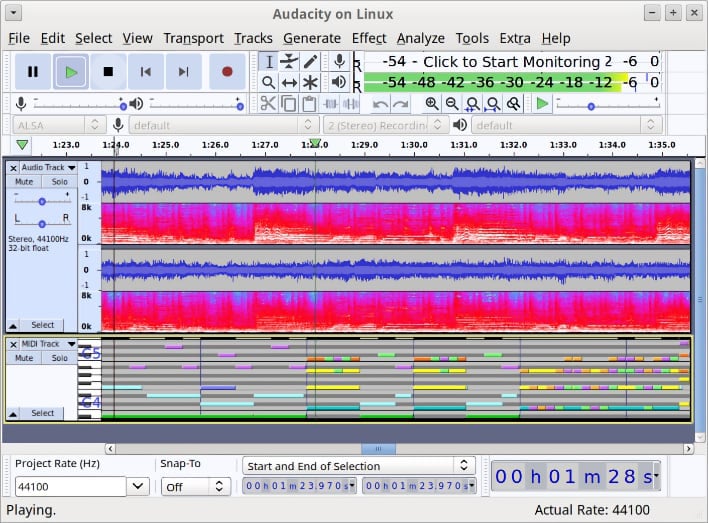Audacity Address Privacy Uproar And Refutes Claim That Its Audio App Is Spyware

Some of the key sticking points that alarmed users of the audio editing program were that while customer data is hosted primarily in the European Economic Area (EEA), it could "occasionally" be shared with Audacity's main office in Russia (and the United States). In addition, Muse Group explained that customer data could be shared with "any competent law enforcement body, regulatory, government agency, court, or other third-party."
Audacity currently has amassed over 100 million downloads, and there was a swift backlash to the app's privacy policy updates. Muse Group was forced to respond to an angry user base, many of which question why locally-run software needs to phone home in the first place.
The company tries to cut the tension, describing the policy change as one big misunderstanding. "We believe concerns are due largely to unclear phrasing in the Privacy Policy, which we are now in the process of rectifying. We are working with our legal team to revise our privacy policy to more clearly communicate the above points and our intent."
The company indicates that it doesn't sell any of the data that it collects from users with third-party companies. It also says that it only collects "limited" data, including the user's IP address, OS version/CPU type, and optional error reporting data (which is user-selectable).
"We will not collect or provide any information other than data described above with any government entity or law enforcement agency," Muse Group continues. Regarding the law enforcement aspect of the user uproar, there are the situations where that data sharing would come into play:
- Compelled by Court - Data is not shared upon an agency request; we will do so only if compelled by a court of law in a jurisdiction that we serve.
- Limited Window - After 24 hours the IP address being collected is irretrievably lost.
- Jurisdiction Requirements - We operate in many countries around the world and this is a standard policy requirement for providing services in many jurisdictions, regardless of the depth of data collected or nature of service.
Muse Group hopes to ease the [privacy] fears of its customers, many of which have been around for the two decades that Audacity has been in existence. "We do understand that unclear phrasing of the Privacy Policy and lack of context regarding introduction has led to major concerns about how we use and store the very limited data we collect," the company concluded. "We will be publishing a revised version shortly."

